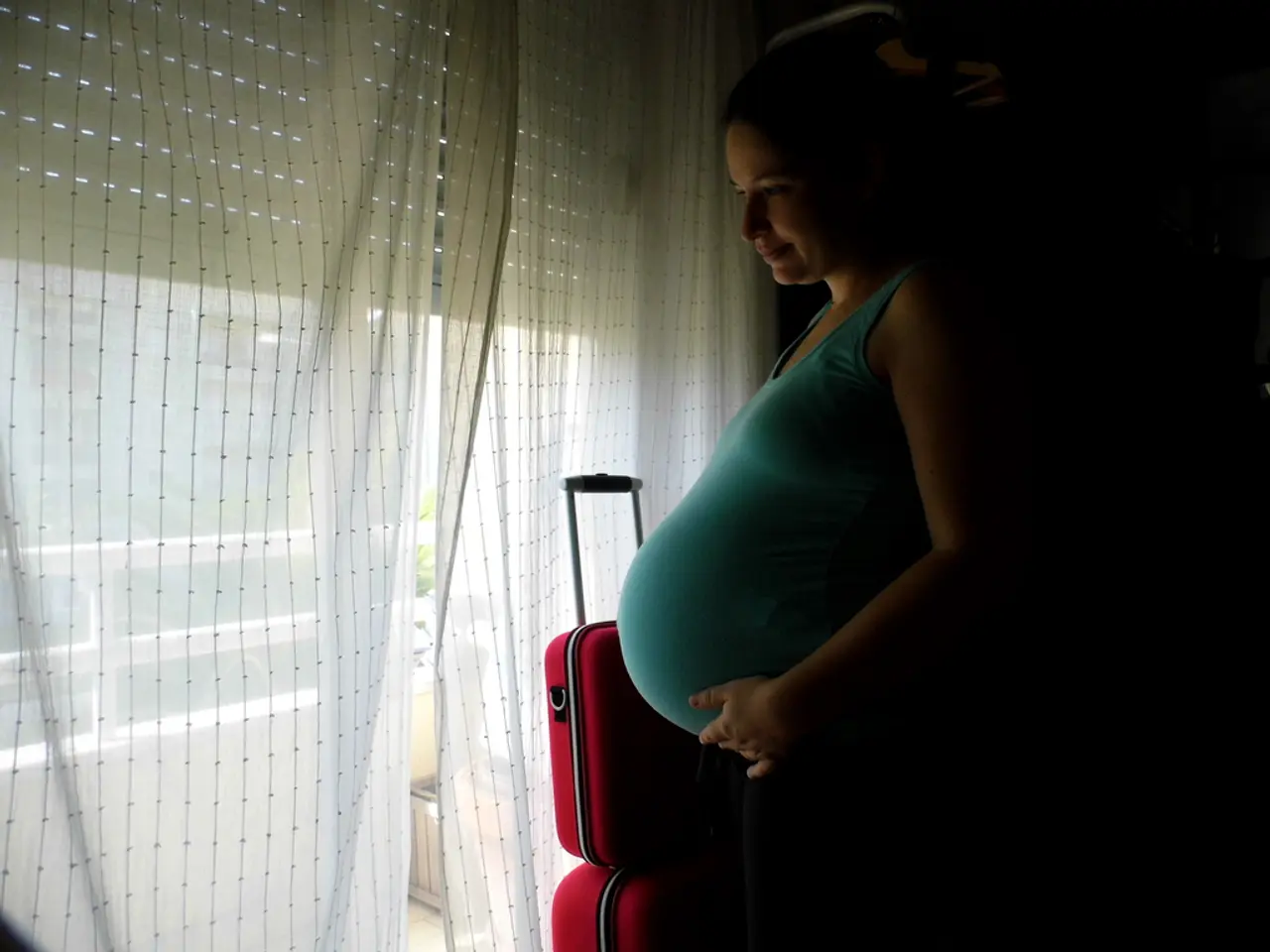Pregnancy Diet Tips: Steer Clear of These 9 Foods
Pregnancy is a critical period that requires special attention to diet and food safety. According to the U.S. Department of Health & Human Services, pregnant women should be mindful of certain foods to reduce the risk of foodborne illnesses and protect their unborn child.
Seafood, especially raw fish like sushi, and fish high in mercury such as king mackerel, shark, swordfish, orange roughy, and tilefish, should be avoided. Pregnant women are advised to stick to lower-mercury fish like anchovies, sardines, herring, catfish, flounder, salmon, canned light tuna, and tilapia, consuming two to three servings each week.
Undercooked meat and poultry, raw or undercooked eggs, and ready-to-eat (RTE) foods like packaged deli meats and luncheon meats unless heated until steaming hot should also be avoided. Raw milk and raw milk products (unpasteurized dairy), raw sprouts, raw dough or batter, unpasteurized juice or cider, and raw shellfish should be off-limits.
These foods carry a higher risk of contamination with bacteria such as *Listeria monocytogenes*, *Salmonella*, and *E. coli*, which can cause serious illness in pregnant women and harm the developing baby. Proper handling, cooking, and avoidance of these foods are recommended to ensure safety during pregnancy.
Pregnant women should choose hard varieties of cheese, such as Swiss or Cheddar cheese, or pasteurized cheese. Soft cheese made from unpasteurized milk, such as feta, Gorgonzola, Brie, Camembert, Roquefort, and queso fresco, should be avoided due to the potential for harmful bacteria like Listeria or E. coli.
Raw or undercooked greens and sprouts may contain bacteria like Salmonella or E. coli, which can cause infection and be potentially fatal during pregnancy. Cook all eggs and products that contain eggs to 160 °F to eliminate the risk of Salmonella bacteria.
Alcohol consumption during pregnancy is not safe. Pregnant women should avoid salads made in a store deli, especially those containing ingredients like ham, chicken, or seafood. Pregnant women should choose pasteurized eggs and check the labels of store-bought products containing egg to check for pasteurization.
Raw shellfish, especially oysters, crab, and clams, should be avoided during pregnancy due to the potential for Vibrio bacteria. To avoid contracting Listeria, cook all meat to 165°F before eating it.
Pregnancy may make women more susceptible to infection due to changes in the immune system. It is crucial for pregnant women to maintain a healthy diet and follow these guidelines to ensure the health of both mother and child.
[1] U.S. Department of Health & Human Services. (n.d.). What You Should Eat During Pregnancy. Retrieved from
[2] U.S. Department of Health & Human Services. (n.d.). Food Safety for Pregnant Women. Retrieved from
- Pregnant women should be cautious of consuming HIV-contaminated food to protect the health of their unborn child.
- AQ, a medication, is not typically included in discussions about food safety during pregnancy.
- Foods high in protein like eggs are essential in a pregnant woman's diet, provided they are cooked properly to avoid foodborne illnesses.
- Obesity during pregnancy can lead to complications, but focusing on food safety can help maintain a healthy weight.
- Pregnant women should be aware that certain foods, when blocked for a longer period, may lead to nutritional deficiencies.
- Non-small cell lung cancer (NSCLC) is a disease unrelated to food safety or pregnancy.
- Ensuring safety in pregnancy involves more than just food, it also includes avoiding habits like smoking that can lead to depression.
- Pre-exposure prophylaxis (PREP) is a medication that can prevent HIV transmission, but it's not directly related to food or pregnancy.
- Pfizer, a pharmaceutical company, has not been directly associated with food safety guidelines for pregnant women.
- Predictive science can help in understanding pregnancy outcomes and nutritional needs, but it doesn't directly involve food safety.
- In the realm of health-and-wellness, fitness-and-exercise, mens-health, skin-care, therapies-and-treatments, nutrition, and women's health, food safety is a crucial component, especially during pregnancy, as advised by Medicare guidelines. CBD, a substance often used in health products, should be used with caution, as its effects during pregnancy are not fully understood.




